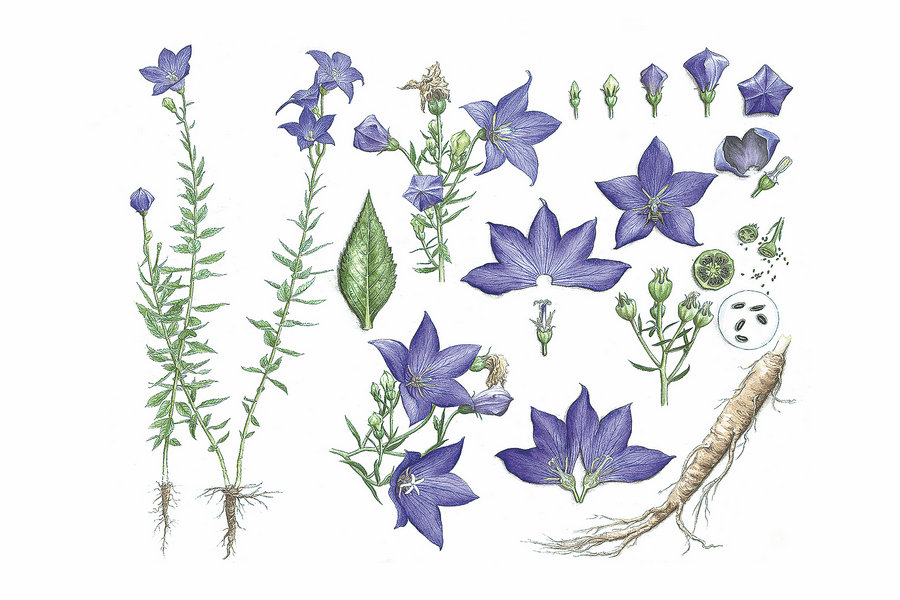

Over the years, the team Nature History has responded to countless inquiries in a concise, clear, and witty manner, unraveling the mysteries of, and popularizing a wealth of knowledge about, natural history to internet users.
In addition, Nature History collaborates with educational institutions to provide courses and lectures through livestreaming and experiments, harnessing the benefits of online education to assist children in acquiring comprehensive knowledge of natural history.
Regular offline activities are also organized. For instance, Li frequently takes children on excursions to observe plants, insects and minerals in their natural surroundings. A notable example is when one child, who initially harbored a fear of bugs, gradually developed curiosity and interest in insects after cautiously touching a caterpillar held by Li.
In the past decade, urban parks have witnessed a growing trend of attaching tags to trees, providing information such as names, classifications, and characteristics. Some parks have taken it a step further by incorporating QR codes, enabling visitors to delve deeper into the backgrounds of these trees and plants. Along with other, similar mobile apps designed for identifying flowers, plants and trees, Xingse boasts a substantial user base and is widely utilized by the public. This surge in interest can be attributed to the increasing popularity of natural history books, both within educational institutions and among the general public. Additionally, the rise in courses, lectures and educational trips centered around the observation of nature has further fueled this flourishing trend.
Wu Yinan from Beijing has been a subscriber to Nature History since the fourth grade of primary school. With the guidance of his parents, he has been actively involved in birdwatching and other natural history courses since childhood. Currently, Wu is a senior majoring in the School of Natural Resources at Beijing Normal University. He was team leader at a local birdwatching organization Beijing Feiyu (feiyu meaning flying birds in Chinese) for a year. Established in 2013, it is primarily composed of college students.
Wu notes a consistent increase in both the quantity and intensity of competition among new applicants to join the team each year, indicating a thriving trend. In 2022, Beijing Feiyu faced the challenge of selecting 36 individuals from a pool of 92 applicants originating from 23 universities. This year, the number of applicants increased to 131, hailing from 32 universities, and the team decided to choose 41 among them. Most of these applicants exhibited either prior experience in, or a profound passion for, birdwatching and bird conservation.